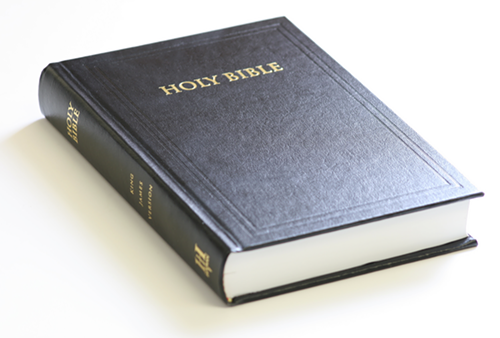
The Christian Bible took one step closer to becoming the official state book of Tennessee Tuesday.
The House Naming, Designating, and Private Acts Committee may not sound exciting. But it has been a main battlefield of the Tennessee culture wars this legislative session, primarily with debates on what to do with the Nathan Bedford Forrest bust in the State Capitol building.
Rep. Jerry Sexton (R-Bean Station) brought his Bible bill back to the legislature this year after it was defeated last year in a full House floor vote.
This time, though, Sexton added language to the bill to show it wasn’t just a Christian thing. The new bill says the Bible has had historical and economic impacts on the state and, therefore, should be its state book. He even said the folks at Liberty University have agreed to defend the move if it was contested in court.
Just before the dog pile of Christian Representatives smothered Sexton and his bill with righteous tones of their love of the book, one committee member disagreed with the idea.
“I have multiple churches in my district and multiple synagogues and mosques in my district,” said Rep. John Ray Clemmons (D-Nashville). “If the state codified and recognizes the Bible as the state book, what does that say to [those who aren’t Christians] about their religion? How should they interpret that?”
Sexton said “it would not say anything to them, anymore than having Tennessee designated as the Volunteer State.”
Clemmons said the legislation is “exclusive in nature” and, in his opinion as an attorney, is unconstitutional as a violation of the establishment clause.
To that, Sexton said that “every time we make a vote here and almost everything we do, excludes someone and includes someone. Exclusions and inclusions…that goes on all the time. [This bill] does not exclude anyone. …. It doesn’t require anyone to go to church or buy a Bible or read it. It just recognizes it for historical purposes.”
One Representative in the room likened the move to naming the state flower or bird. Another read passages from the Declaration of Independence, which, he said, showed that the United States was established as a Christian nation. Another said if legislators “see fit“ to make the Bible the state book, then they’ll do what “we see fit.”
The bill was passed with only two audible “nays.” No roll call vote was taken. It moved on to another committee to be added to the House calendar for a floor vote.

 Greg Cravens
Greg Cravens